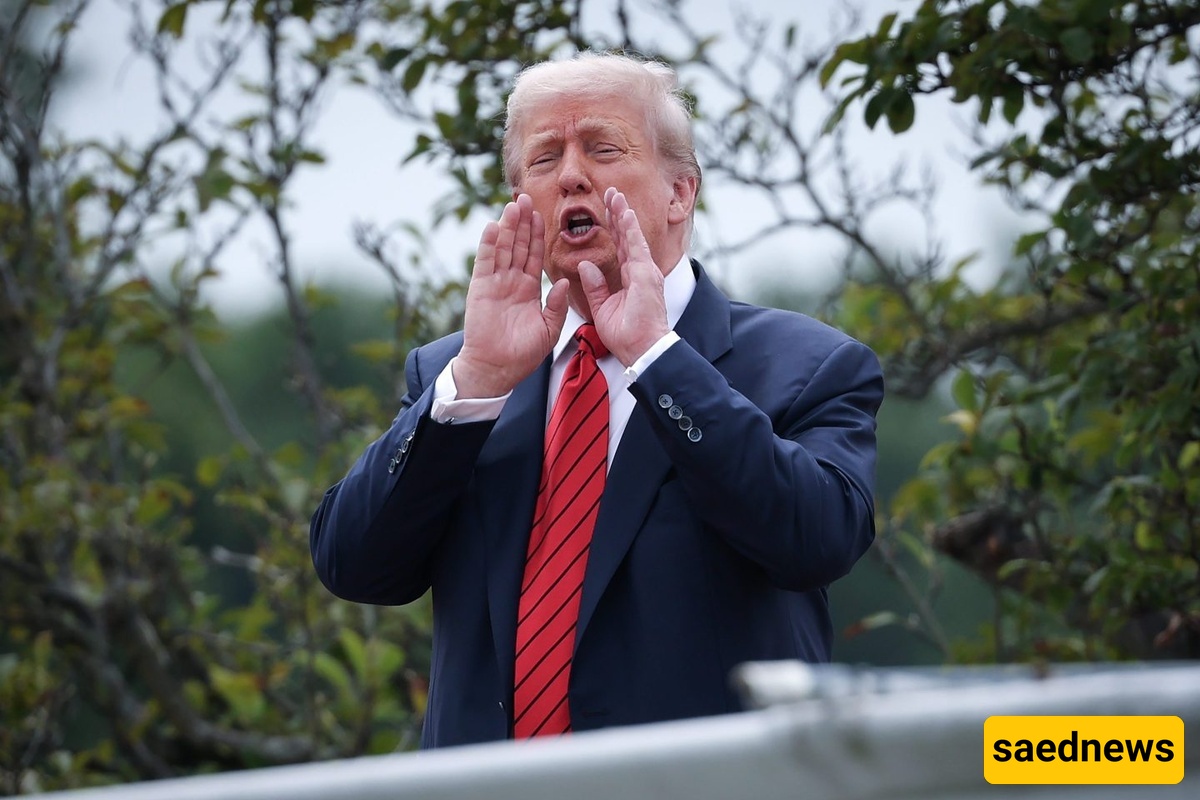SAEDNEWS: Donald Trump, through a controversial decree, placed the police of the U.S. capital under federal control and deployed hundreds of National Guard troops to the streets of Washington.

According to SaedNews, citing CNN, in a rare move, Donald Trump issued an official decree placing the capital’s police under federal control and sending hundreds of National Guard troops into the streets of Washington, D.C. Despite low crime rates in the city, many analysts say this is less a response to a real threat than part of a calculated political show. Critics warn that such intervention could become a new model for limiting urban autonomy and expanding federal influence — a model that blurs the line between public safety and authoritarian politics.

On August 11, Trump, invoking the powers outlined in the Home Rule Act, issued an order transferring the management of the Washington Metropolitan Police Department to the Department of Justice — under Attorney General Pam Bondi. At the same time, he ordered the deployment of 800 National Guard troops to “restore law and order.” In his speech, Trump called the move “the beginning of Freedom Day” and vowed to “take back the capital.”
This order came despite official data showing crime and violence in Washington at their lowest levels in three decades. Even according to the local police department’s own reports, many crime indicators have seen significant drops compared to last year.
Washington Mayor Muriel Bowser issued a statement calling Trump’s action “illegal and unprecedented,” saying the decision not only lacks security justification but is also a blatant violation of the city’s right to self-governance. She stressed that the current situation is in no way a “genuine emergency.”
D.C. Attorney General Karl Racine, in an interview, warned that the intervention could set a “dangerous precedent” for the political use of federal power in local affairs. He compared it to political interventions in opposition-run cities in less democratic countries.
By contrast, the White House and Trump’s Republican allies defended the order as necessary to counter what they called “rising crime and disorder,” arguing that a “federal presence” could boost public safety — even if official statistics do not support this claim.
Under the Home Rule Act passed in 1973, the U.S. president may, in specific emergency situations, transfer control of local institutions to the federal government for up to 30 days. However, the use of this authority must be based on genuine conditions and a serious threat to public safety, and usually requires coordination with Congress.
Critics argue that in the current case, there is insufficient evidence of a real emergency, opening the door to legal challenges against Trump’s order. Some constitutional experts also warn that the extensive use of the National Guard for law enforcement could conflict with the Posse Comitatus Act, which restricts the use of military forces in domestic law enforcement.
Many analysts believe this action is driven more by electoral strategy than security concerns. In recent months, Trump has repeatedly spoken of “chaotic cities run by Democrats” and presented himself as “the candidate of law and order.” Washington, D.C., long seen as a Democratic political stronghold, serves as a symbolic target for such a display of power.
Using a security crisis — whether real or exaggerated — to mobilize a political base is a well-known tactic in U.S. politics. But when such a strategy is coupled with direct federal intervention in local governance, the line between electoral competition and undermining democratic structures becomes increasingly blurred.
Several scenarios have been suggested for the outcome of this move:
Repeatable Model: If Trump’s action ends without serious political or legal consequences, it could become a common tool for intervening in opposition-run cities and states in the future.
Erosion of Public Trust: Imposing federal control on local institutions, especially in the absence of a real crisis, could weaken public confidence in the independence and effectiveness of local governance.
Blurring Security and Politics: Using military or paramilitary forces for politically charged purposes could normalize heavy security presence in public spaces — a trend that in the long term runs counter to America’s liberal-democratic spirit.
Trump’s move in Washington, D.C., goes beyond a local dispute. It is a test of U.S. institutions’ ability to maintain balance between security and freedom, and between federal power and local autonomy. Today, the decision is seen largely as a political maneuver; but if it becomes a model for the future, it could signal fundamental changes in the relationship between the federal government and its citizens — changes that may cast the shadow of authoritarianism over the capital and beyond.

